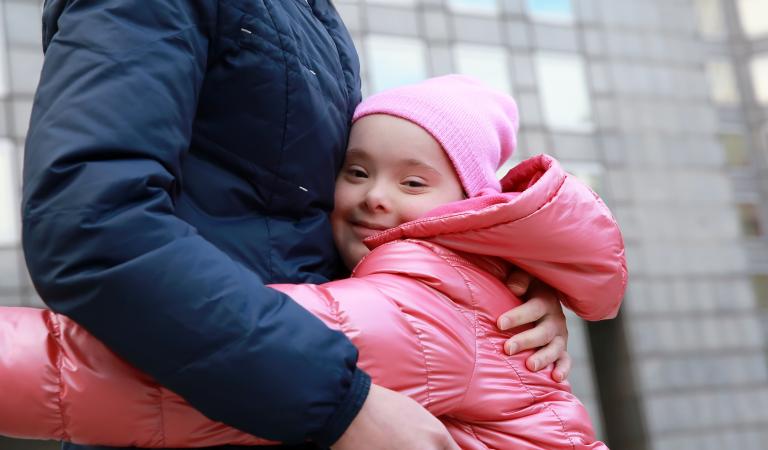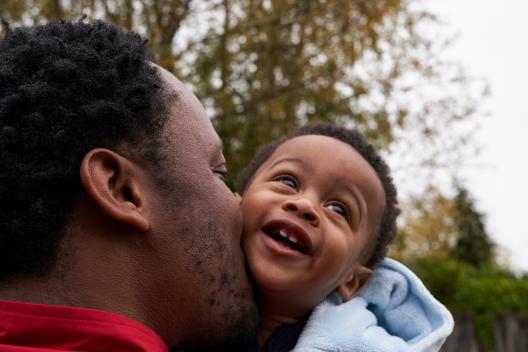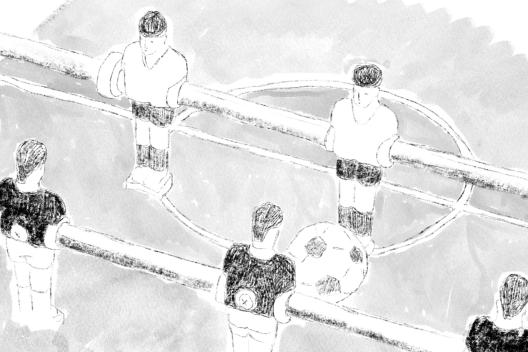The government’s mission to ensure every child has the best start to life is a source for great hope.
Prioritising prevention will break the unfair link between family background and opportunity. Combine this new mission with the government’s continued commitment to expand early years funded places, and we have a fantastic opportunity to improve life chances and reduce childhood inequality.
The current childcare market
The current childcare market in England isn’t equally balanced to provide access to high-quality childcare to all families.
Of the 10,000 day nurseries in England, 84% are for-profit and most are tiny, with one or two settings. Many of the largest, multi-chain providers are owned by private equity firms and foreign investors, encouraged by low risk, guaranteed returns backed by taxpayer subsidies. Whilst these providers deliver positive early education opportunities, they are the ones who have the most to gain from the future policy direction, with children from the most deprived backgrounds, and those most in need of high quality education most likely to be excluded from the benefits.
Entrenching inequality
Providers primarily focused on maximising profit tend to establish services in communities with higher household incomes, greater parental employment, and families who can afford additional nursery fees; otherwise, they risk closure.
As a consequence, this system results in ‘childcare deserts’, areas where there is a shortage of accessible and flexible childcare places. Deserts are concentrated in the most deprived local authorities, low-income communities, where wages and skill levels are lower and paid work for parents is more insecure (see map below, created from New Economics Foundation data). Rural communities also suffer from childcare deserts, where falling birth rates reduce demand. Early years places for children with special needs and disabilities are hard to find anywhere, as extra investment and the extra resources these children need are hard to secure and make the settings financially non viable without additional funding or support.
The result is that the children who could benefit the most from high quality early education, will be the ones most disadvantaged by the way the current market is organised, as highlighted by IPPR’s research on ‘The Childcare Challenge’.
Moreover, the expansion of government funded early years places, will disadvantage smaller providers operating in low-income neighbourhoods. These providers are much less able to charge additional fees to parents and to stay financially viable. Yet these organisations, particularly those with social-purpose values and approaches, are well placed to deliver on the government’s mission because public investment in them also builds social value through the delivery of high quality early education for all, not just some.
Over the past year, we have been exploring how social purpose providers are delivering great work, and what it might look like to grow and increase social purpose outcomes within the childcare market. Here are a couple of examples of the brilliant models and approaches that have inspired us:
Creating social value conditions to ensure better access to high quality education and care for more families
The Indigo Group
Indigo Group is a social enterprise in Glasgow, providing a comprehensive childcare model for children and young people from 6 weeks to 16 years. For over 25 years, the group has focussed on providing high quality learning and childcare experiences for all children, regardless of where they live and their backgrounds. They view access to innovative, family informed learning and childcare as the key to empowering families to overcome poverty
With a focus on whole-family working, The Indigo Group work closely with local community people, places and organisations to drive the importance of community in early development, going beyond the delivery of services to participate in communities and create positive change for families
Indigo is committed to inclusive practices, especially for families requiring additional support. Their dedication has been recognised with accolades, such as a “Highly Commended” award in the Inclusive Practice category at the Nursery World UK annual awards in 2024.
Indigo Group is a social enterprise in Glasgow, providing a comprehensive childcare model for children and young people from 6 weeks to 16 years. For over 25 years, the group has focussed on providing high quality learning and childcare experiences for all children, regardless of where they live and their backgrounds. They view access to innovative, family informed learning and childcare as the key to empowering families to overcome poverty
With a focus on whole-family working, The Indigo Group work closely with local community people, places and organisations to drive the importance of community in early development, going beyond the delivery of services to participate in communities and create positive change for families
Indigo is committed to inclusive practices, especially for families requiring additional support. Their dedication has been recognised with accolades, such as a “Highly Commended” award in the Inclusive Practice category at the Nursery World UK annual awards in 2024.
London Early Years Foundation
London Early Years Foundation is an award winning charitable social enterprise driving social reform through pioneering approaches to delivering high quality, accessible childcare and education in London. LEYF works to counteract the disadvantage that the current UK childcare system creates for children from lower socio-economic backgrounds, by creating high-quality provision in these areas, underpinned by a social pedagogy ensuring all children, staff and apprentices have equal opportunities to succeed and thrive and each nursery is grounded in its local communities.
In 2008 LEYF became a social enterprise, focussed on financial self-sustainability in order to offer high quality provision to all children, regardless of their background.
Now, with 44 nurseries across London, LEYF uses a cross-subsidy model to drive financial and social impact including situating 75% of their nurseries in strategically targeted lower income areas, which are not financially attractive to commercial providers. 45% of LEYF nurseries are rated as ‘outstanding’ by Ofsted against a national rate of 16% proving the point that nurseries in poor neighbourhoods can deliver outstanding ECEC.
LEYF continuously innovates business and pedagogy, expand its research including developing the first Early Years Chef Academy, providing training and development through the London Institute of Early Years and influencing national policy on many fronts as well as leading the sector on sustainability.
London Early Years Foundation is an award winning charitable social enterprise driving social reform through pioneering approaches to delivering high quality, accessible childcare and education in London. LEYF works to counteract the disadvantage that the current UK childcare system creates for children from lower socio-economic backgrounds, by creating high-quality provision in these areas, underpinned by a social pedagogy ensuring all children, staff and apprentices have equal opportunities to succeed and thrive and each nursery is grounded in its local communities.
In 2008 LEYF became a social enterprise, focussed on financial self-sustainability in order to offer high quality provision to all children, regardless of their background.
Now, with 44 nurseries across London, LEYF uses a cross-subsidy model to drive financial and social impact including situating 75% of their nurseries in strategically targeted lower income areas, which are not financially attractive to commercial providers. 45% of LEYF nurseries are rated as ‘outstanding’ by Ofsted against a national rate of 16% proving the point that nurseries in poor neighbourhoods can deliver outstanding ECEC.
LEYF continuously innovates business and pedagogy, expand its research including developing the first Early Years Chef Academy, providing training and development through the London Institute of Early Years and influencing national policy on many fronts as well as leading the sector on sustainability.
Acorn Early Years Foundation
Acorn EY Foundation specialises in outdoor play and learning, the use of natural resources, healthy food, and an emphasis on the professional development of their staff.
In 2012, the organisation began its transition into a charitable social enterprise and this has enabled their strong ethical grounding to be protected for the long-term benefit of the children and families using their services.
Acorn operates a cross-subsidy model which monitors and evaluates the financial viability and the social impact of each nursery to ensure a balance across the group. Partnership working with children’s centres, local authorities, schools, and external agencies is a key feature of Acorn’s success in supporting parents and carers, and in promoting the early years sector as a career pathway for both young people and adults seeking a change of career. Regular visits to care homes and retirement accommodations also enrich the lives of elderly residents in local communities.
In February 2023 Acorn introduced a voluntary contribution towards the cost of food and activities for fully funded places only, to help bridge the gap between Acorn’s costs and the funding rates. Since its introduction a number of these fully funded families have been happy to contribute. Places are also made available for the local authority and for children with additional needs.
Acorn EY Foundation specialises in outdoor play and learning, the use of natural resources, healthy food, and an emphasis on the professional development of their staff.
In 2012, the organisation began its transition into a charitable social enterprise and this has enabled their strong ethical grounding to be protected for the long-term benefit of the children and families using their services.
Acorn operates a cross-subsidy model which monitors and evaluates the financial viability and the social impact of each nursery to ensure a balance across the group. Partnership working with children’s centres, local authorities, schools, and external agencies is a key feature of Acorn’s success in supporting parents and carers, and in promoting the early years sector as a career pathway for both young people and adults seeking a change of career. Regular visits to care homes and retirement accommodations also enrich the lives of elderly residents in local communities.
In February 2023 Acorn introduced a voluntary contribution towards the cost of food and activities for fully funded places only, to help bridge the gap between Acorn’s costs and the funding rates. Since its introduction a number of these fully funded families have been happy to contribute. Places are also made available for the local authority and for children with additional needs.
How to take a place-based collaborative approach, where early years providers positively impact local families and communities
Coin Street
Coin Street Centre Trust and Coin Street Community Builders jointly operate a family and children’s centre in Southwark, Central London, with the Trust overseeing the day-to-day work of the centre.
Coin Street generates income to invest in their neighbourhood. Three-quarters of their income comes from commercial activity such as letting spaces to restaurants, shops, and design studios; and hiring venues for conferences, exhibitions, street markets, etc. All these activities create employment and provide services as well as generating vital income.
Through this partnership and collaborative working, Coin Street were able to increase their reach to families not accessing support elsewhere.
Coin Street Centre Trust and Coin Street Community Builders jointly operate a family and children’s centre in Southwark, Central London, with the Trust overseeing the day-to-day work of the centre.
Coin Street generates income to invest in their neighbourhood. Three-quarters of their income comes from commercial activity such as letting spaces to restaurants, shops, and design studios; and hiring venues for conferences, exhibitions, street markets, etc. All these activities create employment and provide services as well as generating vital income.
Through this partnership and collaborative working, Coin Street were able to increase their reach to families not accessing support elsewhere.
Match Box Nursery & Poplar Harca
Poplar HARCA owns and manages around 9,000 homes and operates in an area of long standing social and economic deprivation with high levels of social exclusion and aims to bring about the social, urban and economic regeneration of the Poplar area.
Matchbox Nursery is an independent day care nursery and social enterprise, based in East London on one of the Poplar HARCA housing association estates. The nursery works in partnership with the housing association which acts as its landlord, supporting the funding of building refurbishment and acting as a key supporter.
Matchbox believes happy, well-remunerated staff are a strong marketing point, boosting occupancy and maximising income. 84% of their staff are local, and good staff relationships save recruitment costs.
The nursery’s emphasis on local employment means that the staff, as well as the children, are beneficiaries. Around 50% of the children have parents who are Poplar HARCA tenants or residents. Many families that attend Matchbox end up building strong bonds, supporting one another.
Poplar HARCA owns and manages around 9,000 homes and operates in an area of long standing social and economic deprivation with high levels of social exclusion and aims to bring about the social, urban and economic regeneration of the Poplar area.
Matchbox Nursery is an independent day care nursery and social enterprise, based in East London on one of the Poplar HARCA housing association estates. The nursery works in partnership with the housing association which acts as its landlord, supporting the funding of building refurbishment and acting as a key supporter.
Matchbox believes happy, well-remunerated staff are a strong marketing point, boosting occupancy and maximising income. 84% of their staff are local, and good staff relationships save recruitment costs.
The nursery’s emphasis on local employment means that the staff, as well as the children, are beneficiaries. Around 50% of the children have parents who are Poplar HARCA tenants or residents. Many families that attend Matchbox end up building strong bonds, supporting one another.
Babyzone
Babyzone is a registered charity, operating since 2019, with a vision to ensure that all children are able to reach their potential, regardless of background and circumstances. Operating out of OnSide Youth Zones, their mission is to empower parents in the UK to enable their children to thrive by creating access to opportunities that create the ability, confidence and support to raise happy, healthy children.
OnSide Youth Zones operate in areas of high socio-economic deprivation, delivering after school and holiday support to young people across five targeted locations. Babyzone utilises the space and provision to offer Early Years and Family Support, partnering with local services and organisations to create a ‘one stop shop’ for parents to access free, evidence based support, courses and classes. Parents and carers are asked to bring their children, to encourage bonding and whole-family support. Classes can include baby massage, Triple P parenting and other local provision, and are rolling throughout the day. While Babyzone pay for highly-skilled practitioners, they are not required to pay membership to organisations who deliver services and use existing premises.
By providing a one stop shop, with open access to free resources through local, trusted community settings, Babyzone ensures that families from underserved communities have access to a mutually supportive community, and that provision in underserved areas have a focal point to reach those who need their services the most.
Babyzone is a registered charity, operating since 2019, with a vision to ensure that all children are able to reach their potential, regardless of background and circumstances. Operating out of OnSide Youth Zones, their mission is to empower parents in the UK to enable their children to thrive by creating access to opportunities that create the ability, confidence and support to raise happy, healthy children.
OnSide Youth Zones operate in areas of high socio-economic deprivation, delivering after school and holiday support to young people across five targeted locations. Babyzone utilises the space and provision to offer Early Years and Family Support, partnering with local services and organisations to create a ‘one stop shop’ for parents to access free, evidence based support, courses and classes. Parents and carers are asked to bring their children, to encourage bonding and whole-family support. Classes can include baby massage, Triple P parenting and other local provision, and are rolling throughout the day. While Babyzone pay for highly-skilled practitioners, they are not required to pay membership to organisations who deliver services and use existing premises.
By providing a one stop shop, with open access to free resources through local, trusted community settings, Babyzone ensures that families from underserved communities have access to a mutually supportive community, and that provision in underserved areas have a focal point to reach those who need their services the most.
Unless we change the system, these for-purpose providers that hold the key to the mission will remain at the margins, and we will see increased public funding being spent on further entrenching inequalities for children and families.
Innovation now, not later
We would love to see innovation across the childcare market. Innovation in terms of childcare business models, governance and pedagogy from all providers. And innovation in terms of market shaping, commissioning and incentives from the government.
In her book ‘Social Leadership in Early Childhood Education and Care’ June O’Sullivan, CEO of LEYF reflects on the opportunity ahead of us to support social businesses:
"ECEC has a social purpose but delivering it within the complex and messy realities of the market model complicated by underfunding and under investment feels like an impossible task for many ECEC leaders."June O’Sullivan, CEO of LEYF
The government must use the current opportunity to support for-purpose and social enterprise provider models that operate to reinvest profit in order to maximise social impact to grow. The government must also provide support to profit-making settings to increase their social value, securing better returns on public investment for all. This diversity and support will improve provision, increasing choice for parents and ultimately create better outcomes for children, with the aim of continuing to be able to scale and offer high quality provision in childcare deserts.
Work with us
Innovation Unit are a social enterprise, focussed on scaling the boldest and best innovations that address persistent inequalities and transform systems. We have a legacy of delivering large scale innovation programmes as a Department for Education partner and are inspired by our work in Goodstart Australia, Australia’s largest childcare provider, who are transforming quality of learning and reinvesting in high quality provision.
Get in touch with us if you are:
- A for purpose provider and want to seek investment to grow
- A local commissioner concerned about access to places in childcare deserts
- A social investor keen to financially invest in the best child care providers with a social mission
- A government minister with a mission to deliver opportunity for the most disadvantaged children, and you have inherited a dysfunctional childcare market in need of major reform
Share this page




